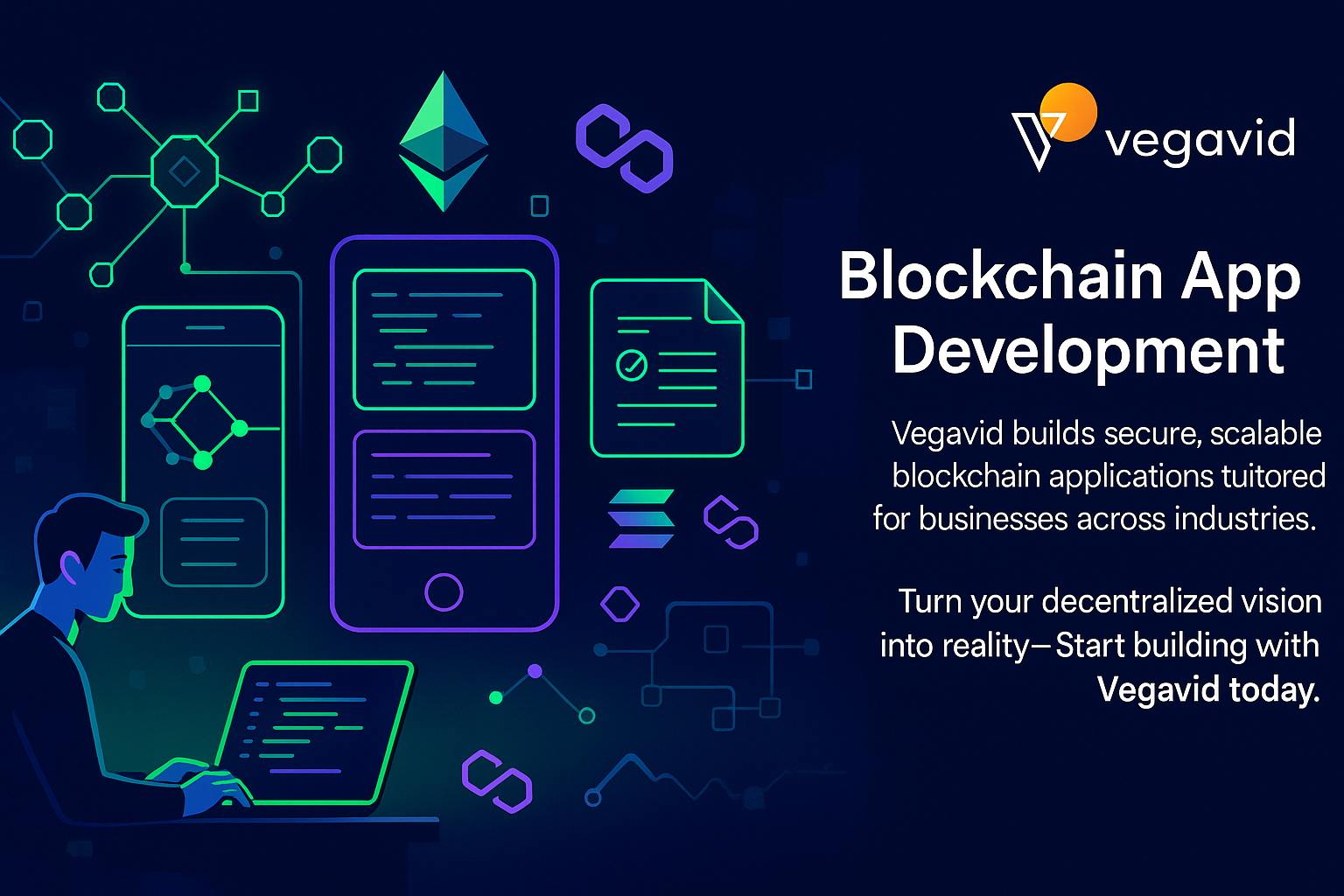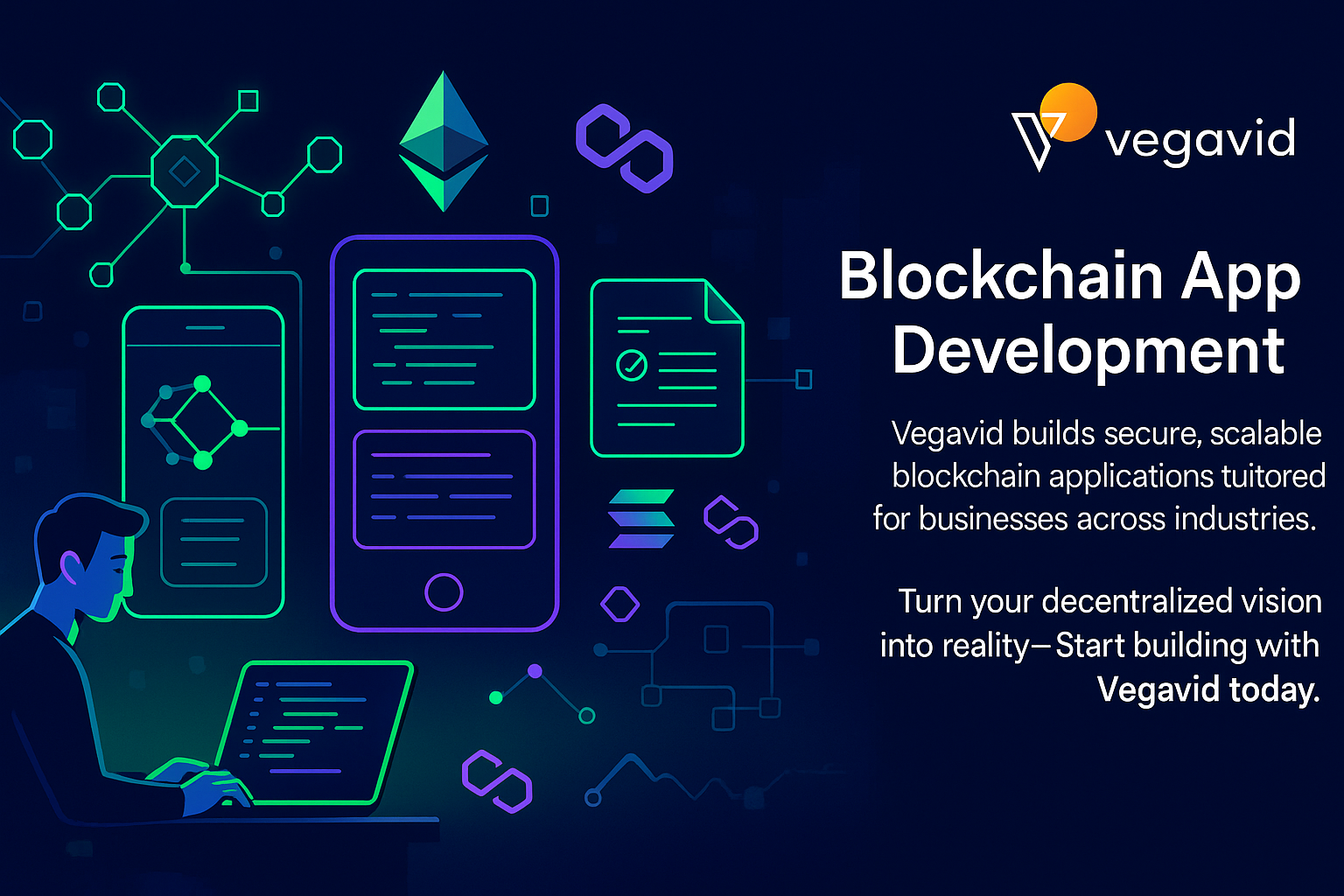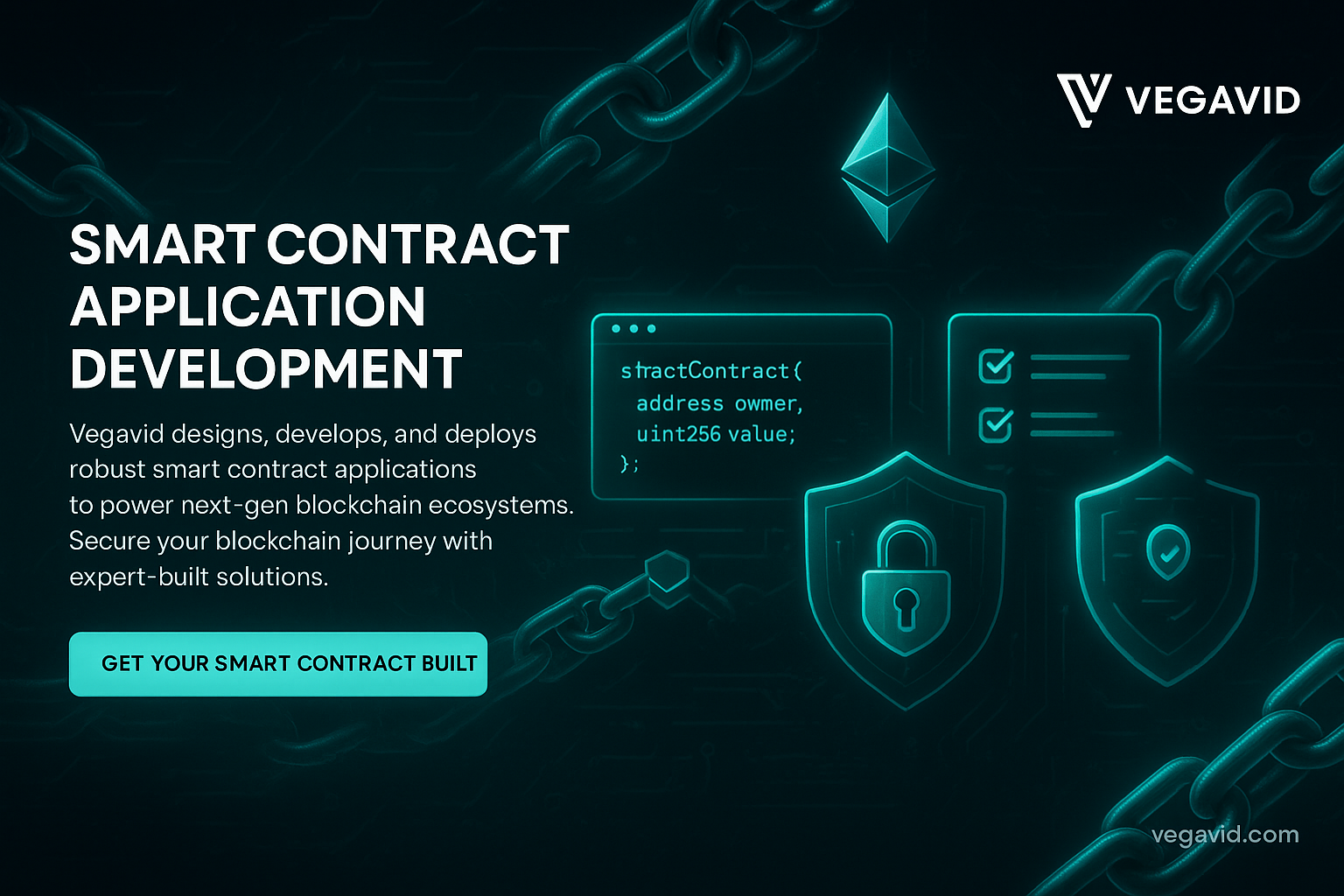
The rise of blockchain technology has revolutionized how businesses approach digital transformation, bringing transparency, security, and decentralization to the forefront. As enterprises increasingly seek robust decentralized solutions, blockchain app development has emerged as a cornerstone of innovation. From fintech and healthcare to supply chain and gaming, blockchain apps are redefining traditional systems by enhancing trust, eliminating intermediaries, and streamlining operations.
This article dives into the growing demand for blockchain applications, the core elements of development, and how to choose the right partner to build secure and scalable decentralized apps.
Why Blockchain App Development Matters
Blockchain isn’t just a buzzword—it’s a transformative force. With smart contracts, peer-to-peer validation, and immutable ledgers, businesses can automate workflows, secure sensitive data, and operate with greater efficiency. Blockchain applications (also called dApps or decentralized apps) operate on distributed networks like Ethereum, Solana, Polygon, or Hyperledger, ensuring tamper-proof transactions and real-time data integrity.
The demand for blockchain app development is rising across various sectors:
Finance: DeFi platforms, crypto wallets, asset tokenization
Healthcare: Secure patient records, data sharing protocols
Supply Chain: Product traceability, fraud prevention
Gaming: In-game asset ownership via NFTs
Real Estate: Transparent property transfer and digital deeds
By adopting blockchain, companies can future-proof their operations and tap into the growing Web3 economy.
Key Components of a Blockchain Application
Creating a successful blockchain app requires a strong foundation. The process is more than writing code—it involves strategy, planning, and deep technical knowledge. Here are the major components:
1. Blockchain Platform Selection
Choosing the right blockchain platform is critical. Ethereum is the go-to for smart contracts, while Solana offers faster transaction speeds and lower costs. For enterprise solutions, Hyperledger or Quorum may be ideal.
2. Smart Contract Development
Smart contracts are self-executing programs that enforce business logic without intermediaries. They’re the backbone of decentralized applications and must be secure, auditable, and efficient.
3. Frontend & Backend Integration
A seamless user interface is essential for user engagement. Blockchain developers must ensure smooth interaction between smart contracts and the frontend using web3.js or ethers.js.
4. Wallet & Payment Integration
Connecting crypto wallets like MetaMask, Trust Wallet, or hardware wallets enhances security and usability.
5. Security & Auditing
Blockchain applications must be resistant to vulnerabilities. Regular audits and rigorous testing help mitigate risks such as reentrancy attacks, overflow bugs, or malicious exploits.
In the midst of this complex ecosystem, it’s vital to work with an experienced team that specializes in blockchain app development and understands the nuances of smart contract creation, consensus protocols, and scalable infrastructures.
Choosing the Right Blockchain App Development Company
The success of your project hinges on selecting a skilled development partner. Here’s what to look for in a top-tier blockchain app development company:
Technical Expertise: Knowledge in various blockchain platforms, languages like Solidity, Rust, or Go, and frameworks such as Hardhat or Truffle.
Custom Solutions: Ability to build dApps tailored to your industry and goals.
Security-First Approach: Proven experience in audit-ready smart contract development and secure integrations.
End-to-End Services: From ideation and prototyping to deployment and support, the company should cover the full product lifecycle.
Scalability Focus: Apps should be optimized for performance under high demand.
One such trusted name in the industry is Vegavid Technology. As a pioneer in Web3 solutions, Vegavid offers tailored blockchain services to help startups and enterprises build secure, user-friendly applications.
Real-World Use Cases and Emerging Trends
Blockchain apps are no longer experimental—they’re actively reshaping industries:
DeFi Applications: Lending, borrowing, and trading platforms with zero intermediaries.
NFT Marketplaces: Secure buying/selling of digital assets and tokenized IP.
DAO Tools: Platforms that facilitate decentralized governance.
Digital Identity Solutions: Immutable IDs for KYC, access management, and identity verification.
Future trends in blockchain app development will include layer-2 scaling, zk-rollups, cross-chain compatibility, and enhanced developer tooling to streamline adoption.
CTA: Build Your Blockchain App with Vegavid Technology
At Vegavid Technology, we specialize in designing and developing enterprise-grade blockchain applications that are secure, scalable, and future-ready. Whether you’re looking to tokenize assets, automate workflows, or launch a next-gen dApp, our team can turn your vision into a robust decentralized solution.
🚀 Get started with Vegavid today—transform your ideas into powerful blockchain applications!
Explore more at 👉 https://vegavid.com/blockchain-app-development-services/
Conclusion
The digital revolution is underway, and blockchain technology sits at its core. Whether you're a startup looking to disrupt traditional industries or an enterprise streamlining internal processes, investing in blockchain app development can unlock unprecedented value. But success lies in the execution—partnering with a trusted, tech-forward team is key.
When it comes to creating secure, scalable dApps that align with your vision, choosing a company like Vegavid Technology ensures you’re building with the best in the industry. Let Vegavid help you shape the future of Web3—today.








Write a comment ...